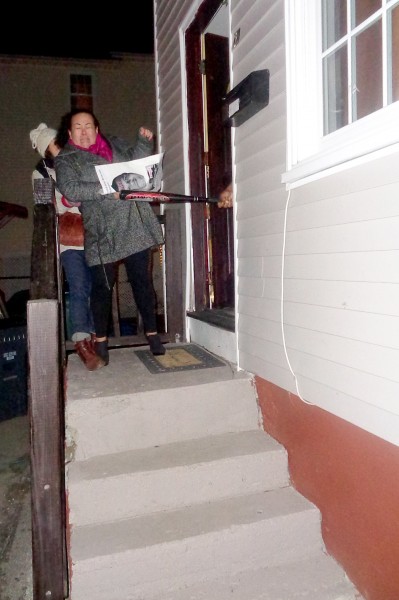
An early morning “trick-or-treat” themed anti-wage theft action at 23 Julian St. in Providence, the home of Juan Noboa, was met with violence Saturday morning as Noboa allegedly assaulted one of his former workers with a baseball bat. About two dozen demonstrators arrived at Noboa’s door at 5:30 am, wearing costumes and carrying signs, there to demand that Noboa pay his former employees the $3,691.35 the Rhode Island Department of Labor and Training deemed to be owed on June 30th, a small fraction of the $17,427.00 in unpaid wages that workers claim to be owed.
To date, Noboa and his partner, Jose Bren, have not paid, necessitating Saturday morning’s action. Instead of paying, Noboa came out swinging with a baseball bat.
According to Fuerza Laboral community organizer Phoebe Gardener,
In our early morning wage theft action today, former Café Atlantic restaurant owner Juan Noboa physically assaulted one of the worker leaders, Flor Salazar, with a bat, hitting her three times in the arm and shoulder but aiming for her head. Flor was there with two other workers who Juan Noboa and business partner Jose Bren owe over $17,000 in stolen wages to. Café Atlantic workers have been organizing for 10 months for their wages, including a previous action at Juan Noboa’s house back in January.
“On June 30th, the RI Department of Labor issued an official order for Juan Noboa and business partner Jose Bren to pay just below $4,000 (only a fraction of the money claimed in their original complaints) to 4 of the 6 workers who filed complaints. It’s been 4 months, and Noboa and Bren still haven’t paid. Workers had no other option then to use community pressure to force Noboa to pay, and Noboa responds by assaulting workers.”
Flor Salazar was taken to the hospital where she was released after determining that she had no broken bones but two or three contusions.
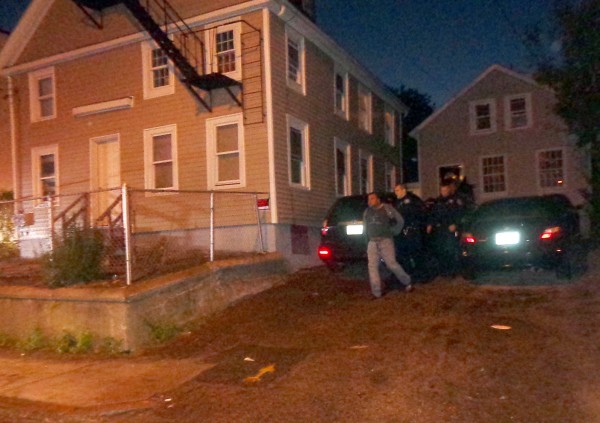
When Providence Police arrived just after 6:30am, Noboa answered the door, according to Providence in Espanol, “screaming about the protesters. Noboa then tried to run, and the police chased him in his home, authorities said… After the altercation, an officer [was] transported by a rescue vehicle fire department at Rhode Island Hospital with a possible broken foot.”
This was the second time workers demonstrated outside the home of Juan Noboa over this issue. Back in January workers went to Noboa’s home, and days later Noboa, through his lawyer, denied owing any money.
In a statement prepared before the action and before she was assaulted, Flor Salazar, who worked between 60 and 70 hours a week at Café Atlantic between August 1st and September 28th of 2014, said, “The DLT decision requires Café Atlantic to pay just a percentage of the total wages we are due, but we thought that Noboa and Bren would at least pay up now with an official order from the state. Workers won’t come forward if they feel that the DLT doesn’t have the tools to actually recover their wages. This isn’t just about our wages. This is about bringing justice for working families and single mothers.”
Wage theft is endemic in the restaurant industry in Rhode Island, yet there is very little recourse available to workers wanting to collect stolen wages. If an employee steals from their employer, they can face arrest and serious legal consequences. If an employer steals from an employee, there is little chance that they will suffer any serious legal consequences.
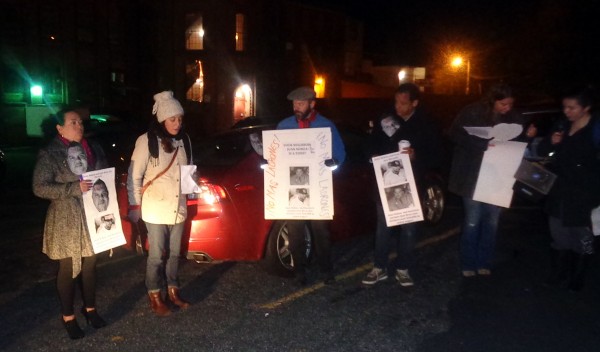
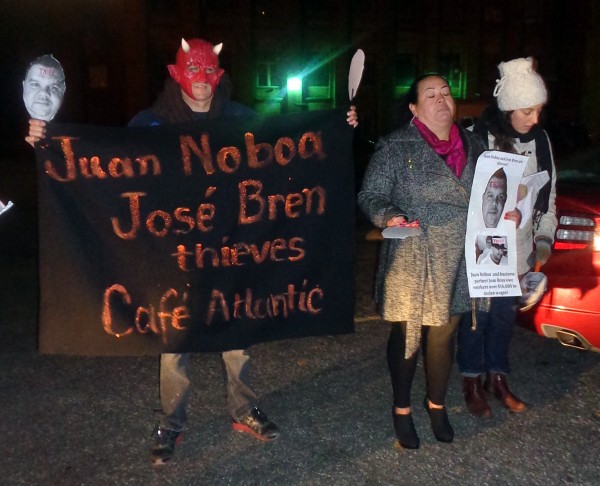
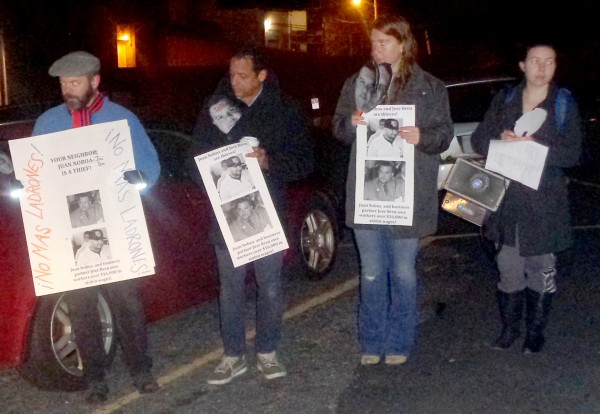
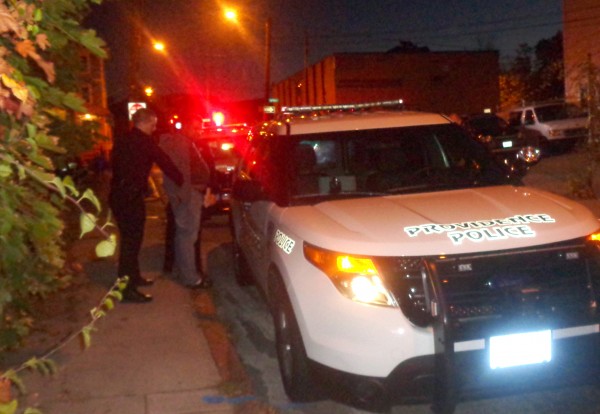

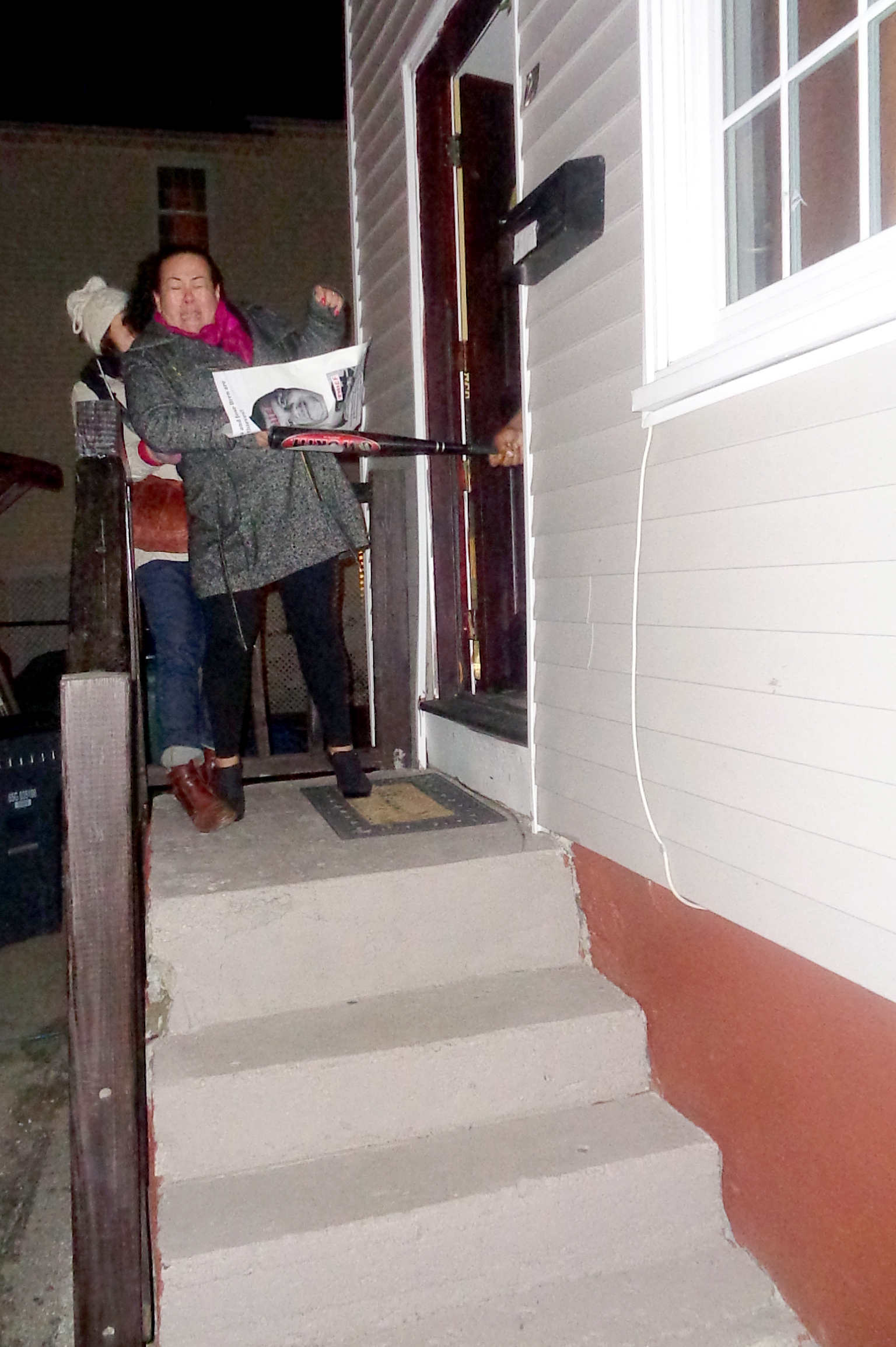

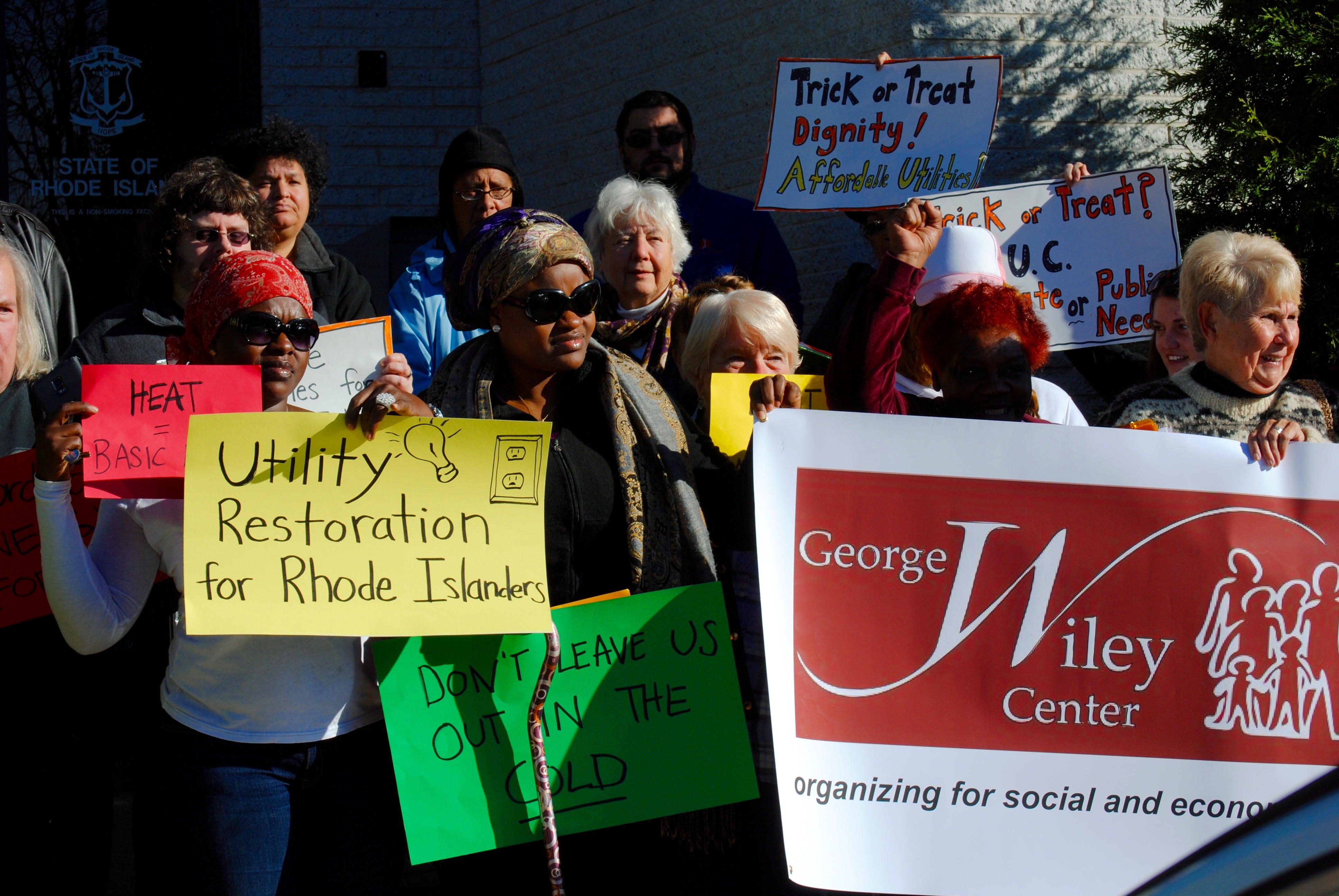
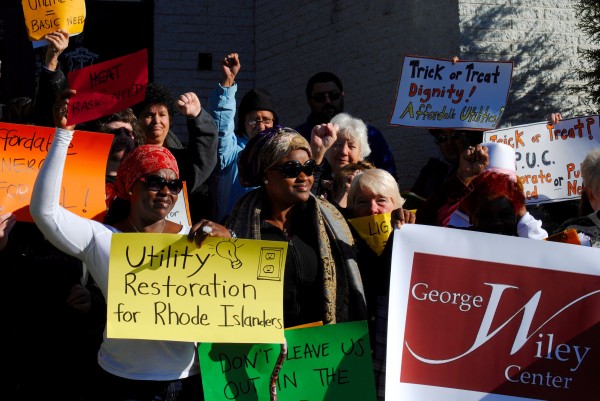 The Rhode Island Public Utilities Commission (RIPUC) today adopted “emergency regulations” designed to make it easier for those who have fallen behind on their payments to National Grid to restore power and heat to their homes. Margaret E Curran, chair of the board, lead fellow commissioners Paul J Roberti and Herbert F DeSimone Jr in an unanimous vote to allow people to get their power restored for a 15 percent payment of the total owed upfront plus the adoption of a regular payment plan. Currently that number can be 50 percent or higher.
The Rhode Island Public Utilities Commission (RIPUC) today adopted “emergency regulations” designed to make it easier for those who have fallen behind on their payments to National Grid to restore power and heat to their homes. Margaret E Curran, chair of the board, lead fellow commissioners Paul J Roberti and Herbert F DeSimone Jr in an unanimous vote to allow people to get their power restored for a 15 percent payment of the total owed upfront plus the adoption of a regular payment plan. Currently that number can be 50 percent or higher.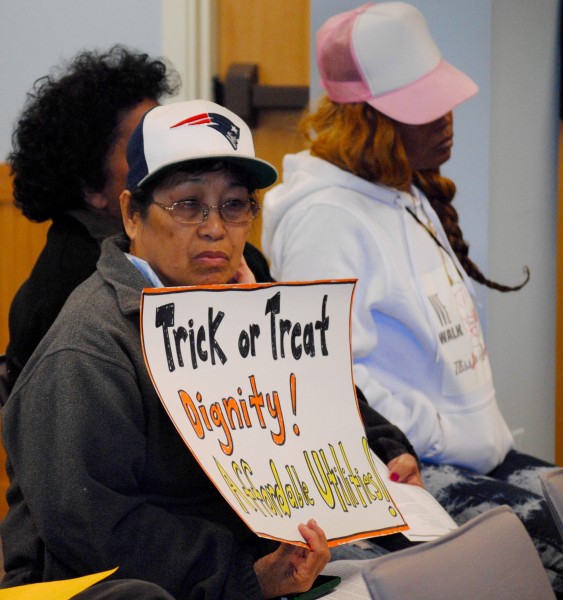 The
The 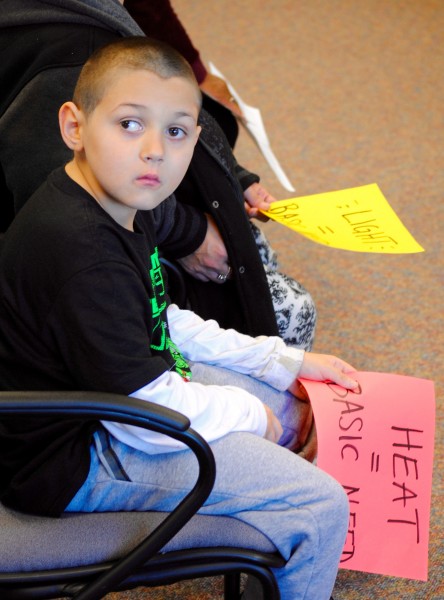 Over thirty people attended today’s RIPUC meeting a good crowd considering the last minute change in date and time of the meeting. Had the board met when originally planned, people would be that much closer to having their power restored. Though the board’s ruling came as a relief to many, to some it will have little effect. Anna told me that she has spent money she might have used to reinstate her gas heat to purchase electric space heaters. In order to have the money back on her debit card in time, she will have to return the space heaters today, wait for the money to be back on her card early next week, and make her payment then. This means that she and her children will be in a house with no heat all weekend.
Over thirty people attended today’s RIPUC meeting a good crowd considering the last minute change in date and time of the meeting. Had the board met when originally planned, people would be that much closer to having their power restored. Though the board’s ruling came as a relief to many, to some it will have little effect. Anna told me that she has spent money she might have used to reinstate her gas heat to purchase electric space heaters. In order to have the money back on her debit card in time, she will have to return the space heaters today, wait for the money to be back on her card early next week, and make her payment then. This means that she and her children will be in a house with no heat all weekend.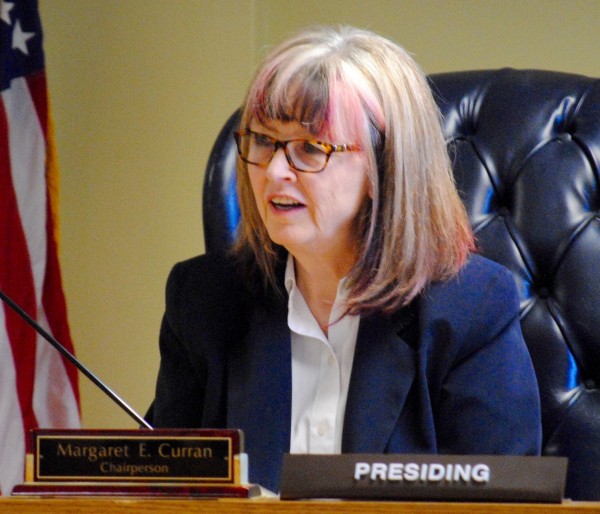
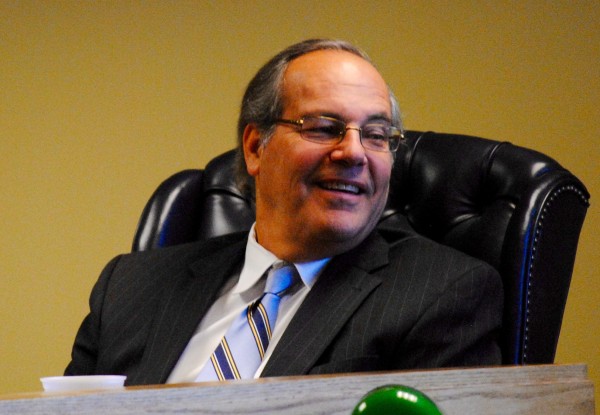
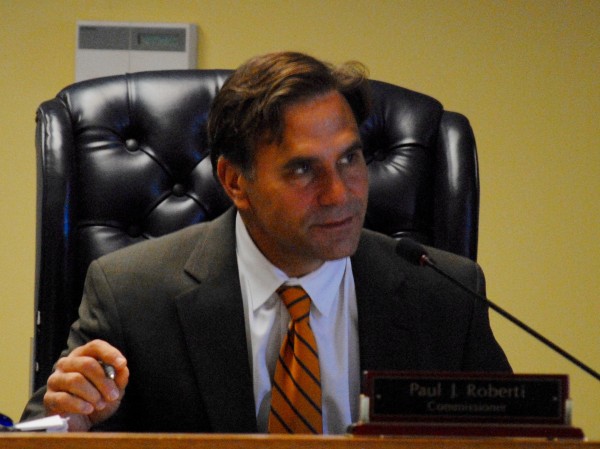
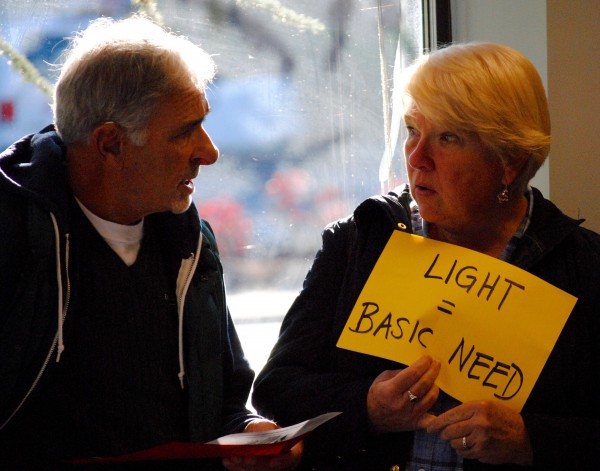
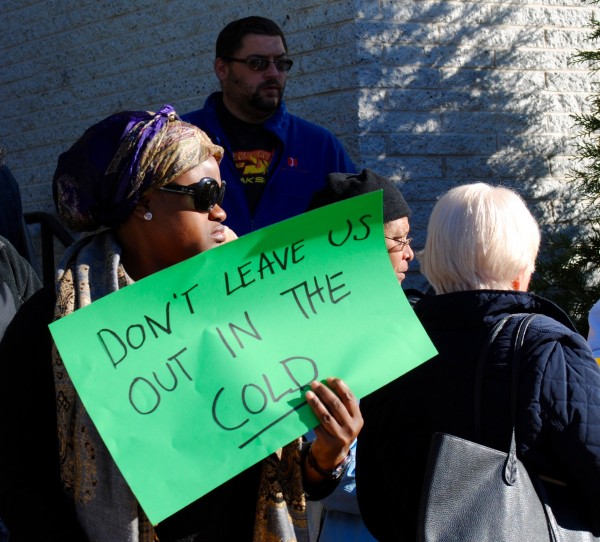




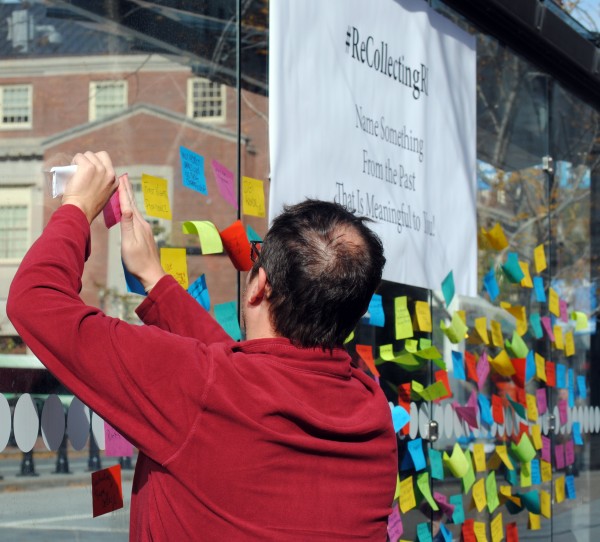 Thursday’s atypically beautiful October weather allowed the Rhode Island Historical Society (RIHS) to really enjoy their “in real life” version of their
Thursday’s atypically beautiful October weather allowed the Rhode Island Historical Society (RIHS) to really enjoy their “in real life” version of their 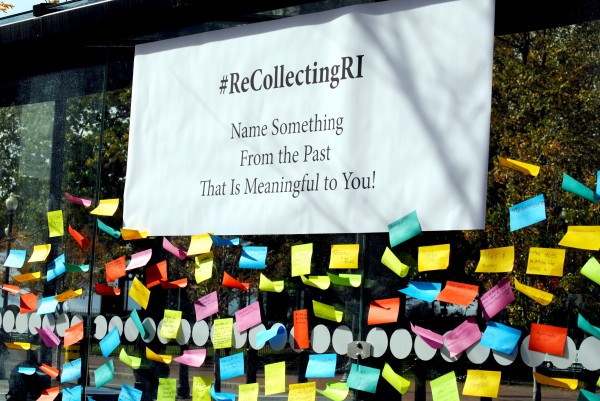
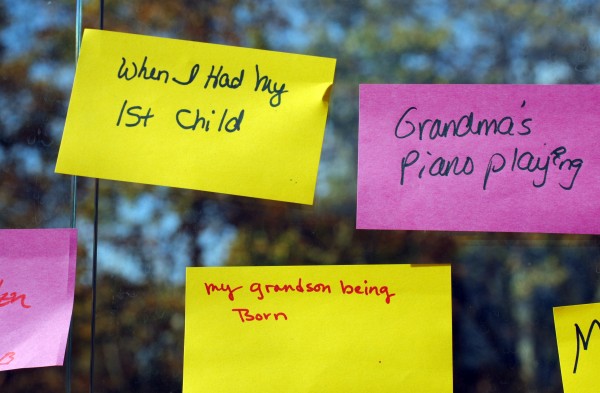

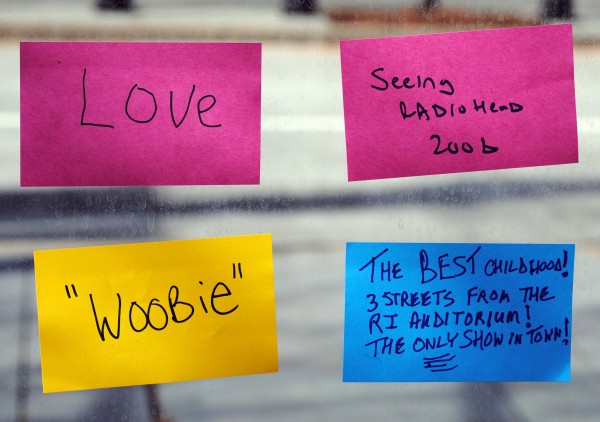

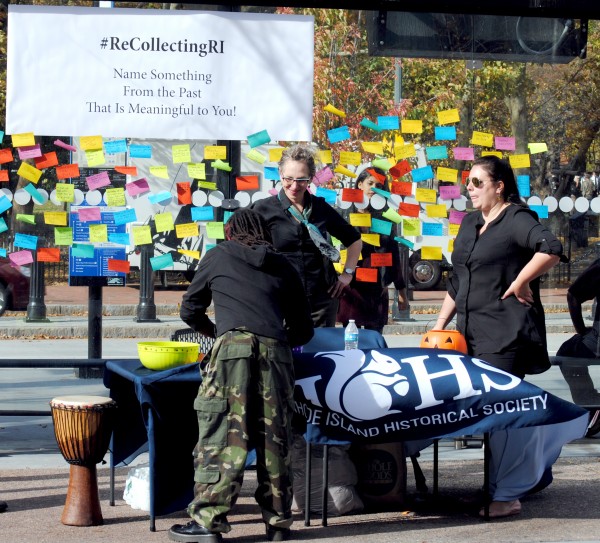
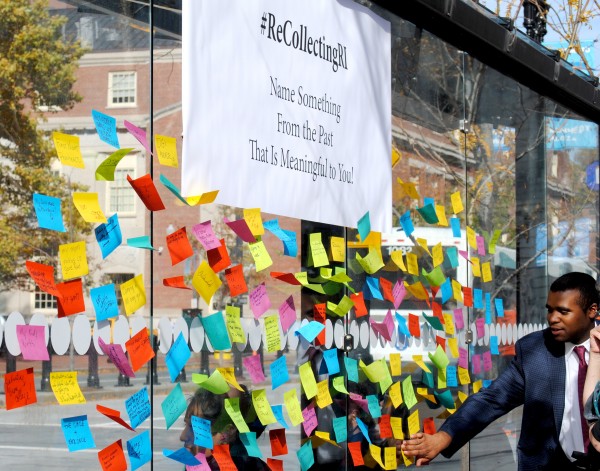
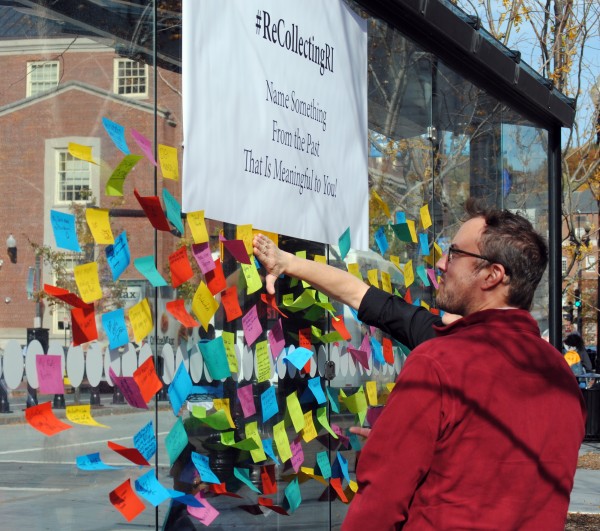

 The American Civil Liberties Union of Rhode Island (ACLU) today filed a
The American Civil Liberties Union of Rhode Island (ACLU) today filed a 
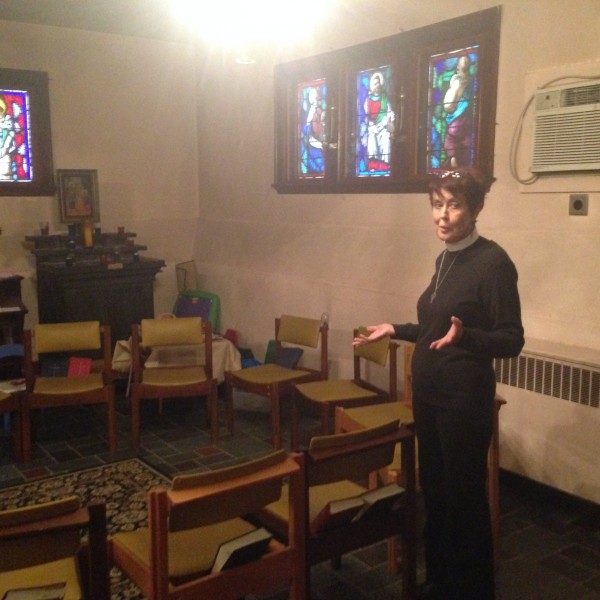



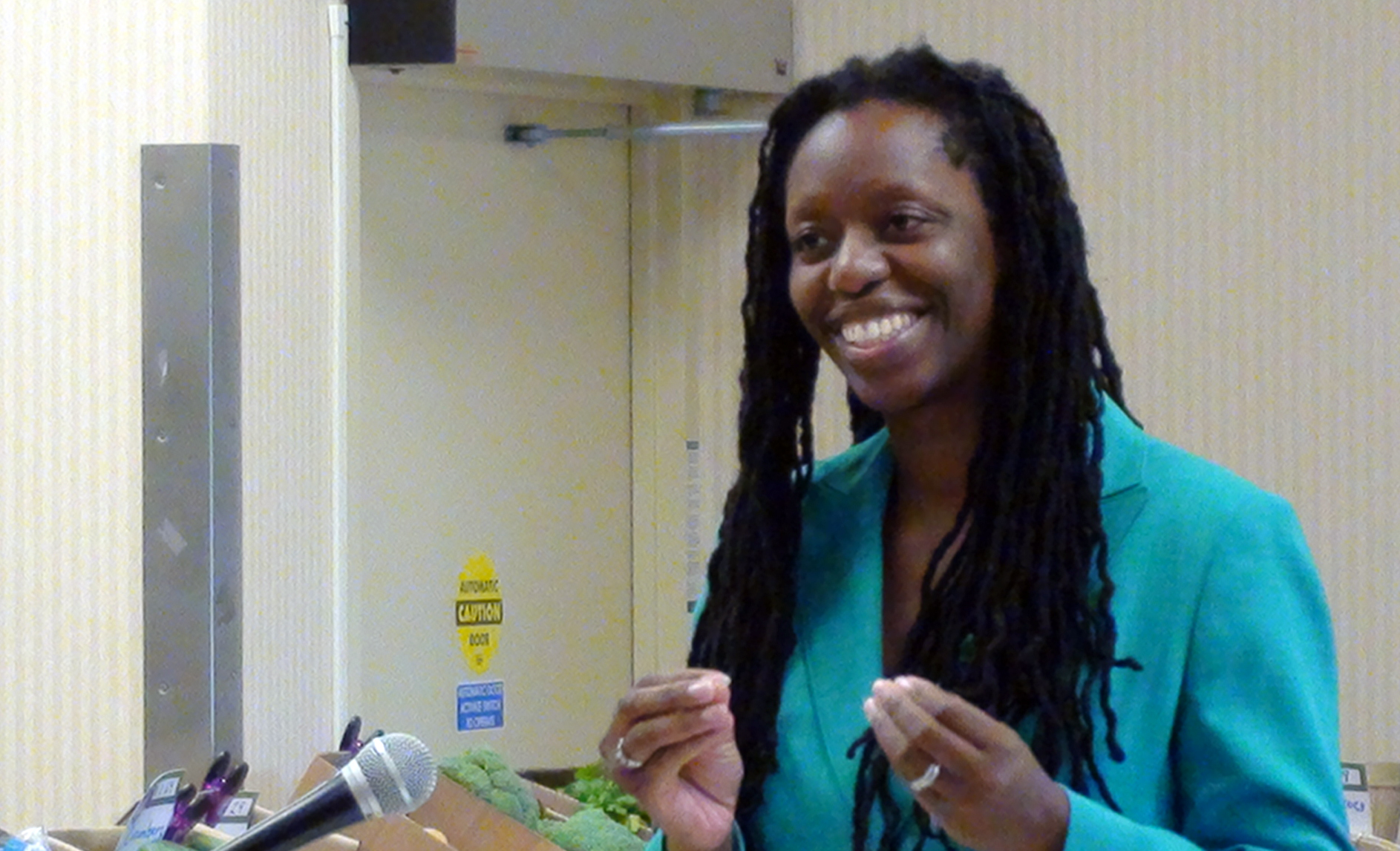

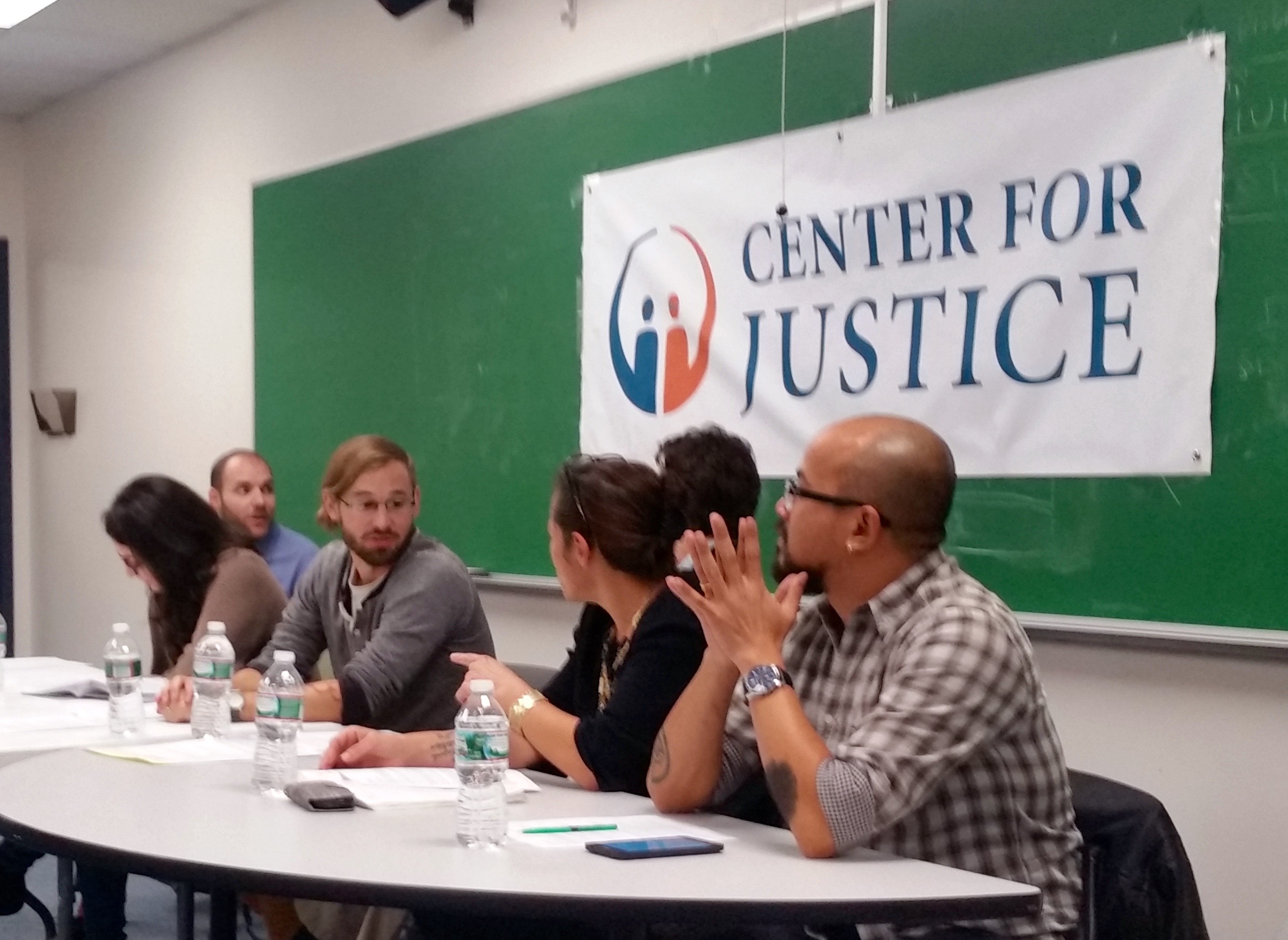
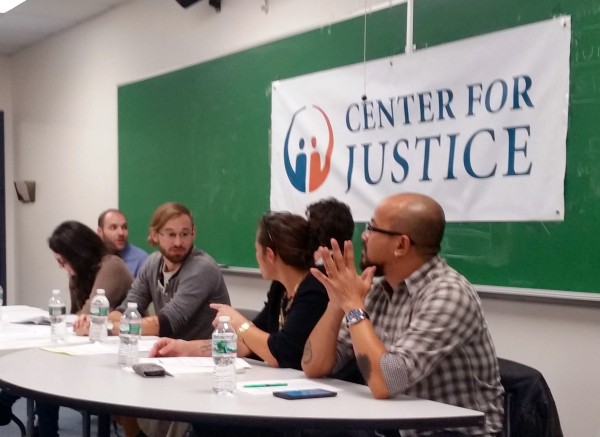 It was a packed house at the RI Center for Justice as Executive Director Robert McCreanor lead a discussion about the collaborative work of community organizers and public interest lawyers in the area of social justice. On the panel were organizers and lawyers who work with DARE (Direct Action for Rights and Equality) and PrYSM (Providence Youth Student Movement) in Providence, and MFY’s Housing Project, the Three-Quarter House Tenant Organizing Project (TOP) in New York City.
It was a packed house at the RI Center for Justice as Executive Director Robert McCreanor lead a discussion about the collaborative work of community organizers and public interest lawyers in the area of social justice. On the panel were organizers and lawyers who work with DARE (Direct Action for Rights and Equality) and PrYSM (Providence Youth Student Movement) in Providence, and MFY’s Housing Project, the Three-Quarter House Tenant Organizing Project (TOP) in New York City.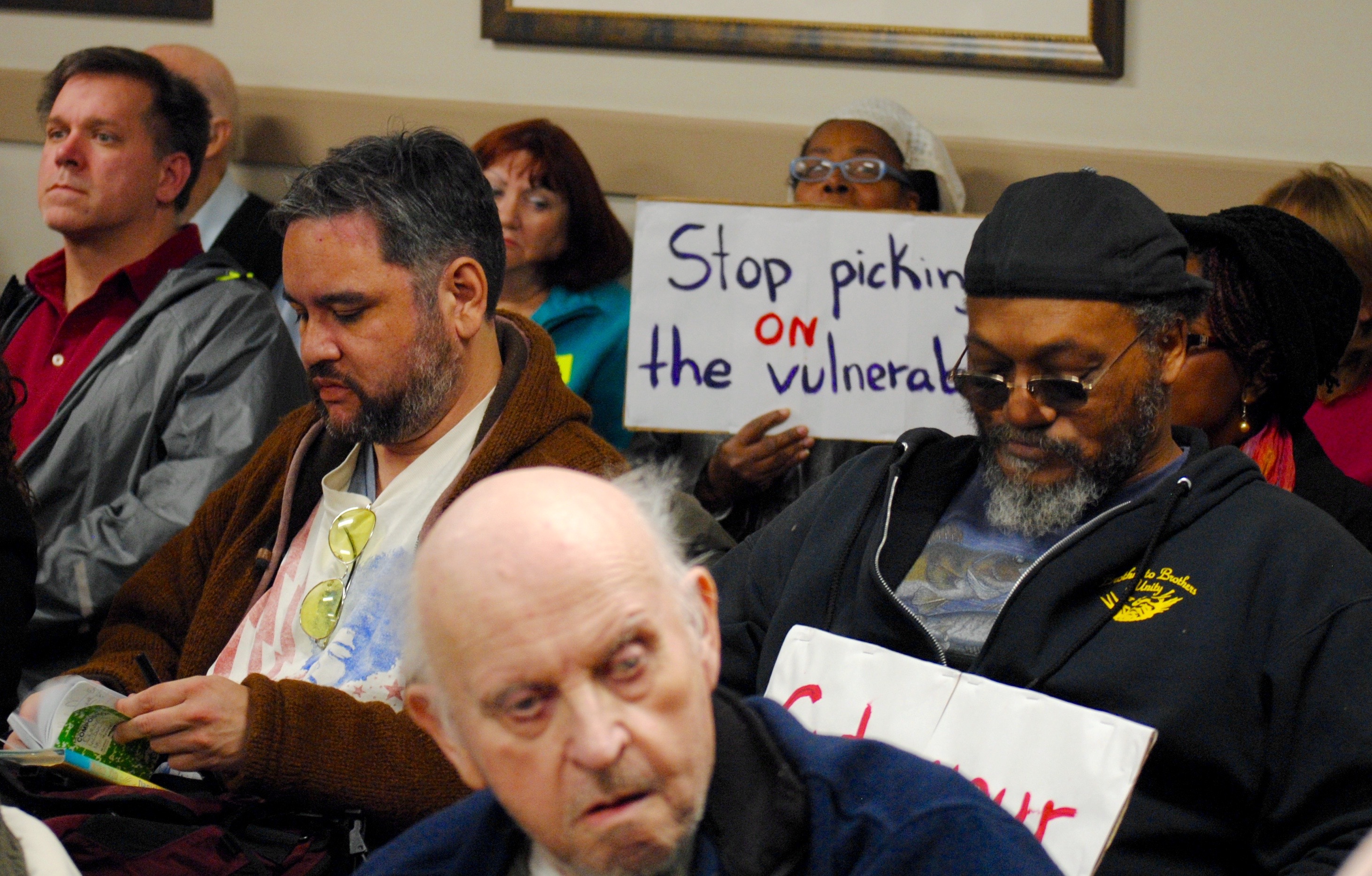
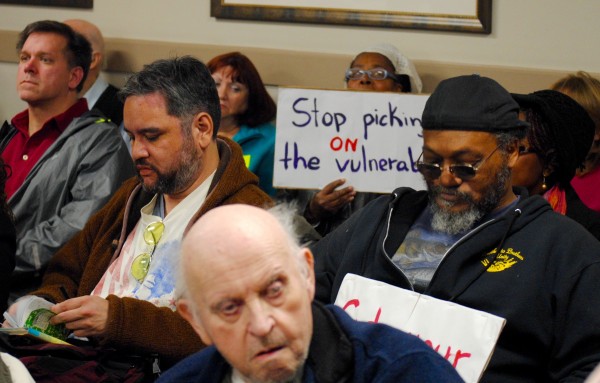




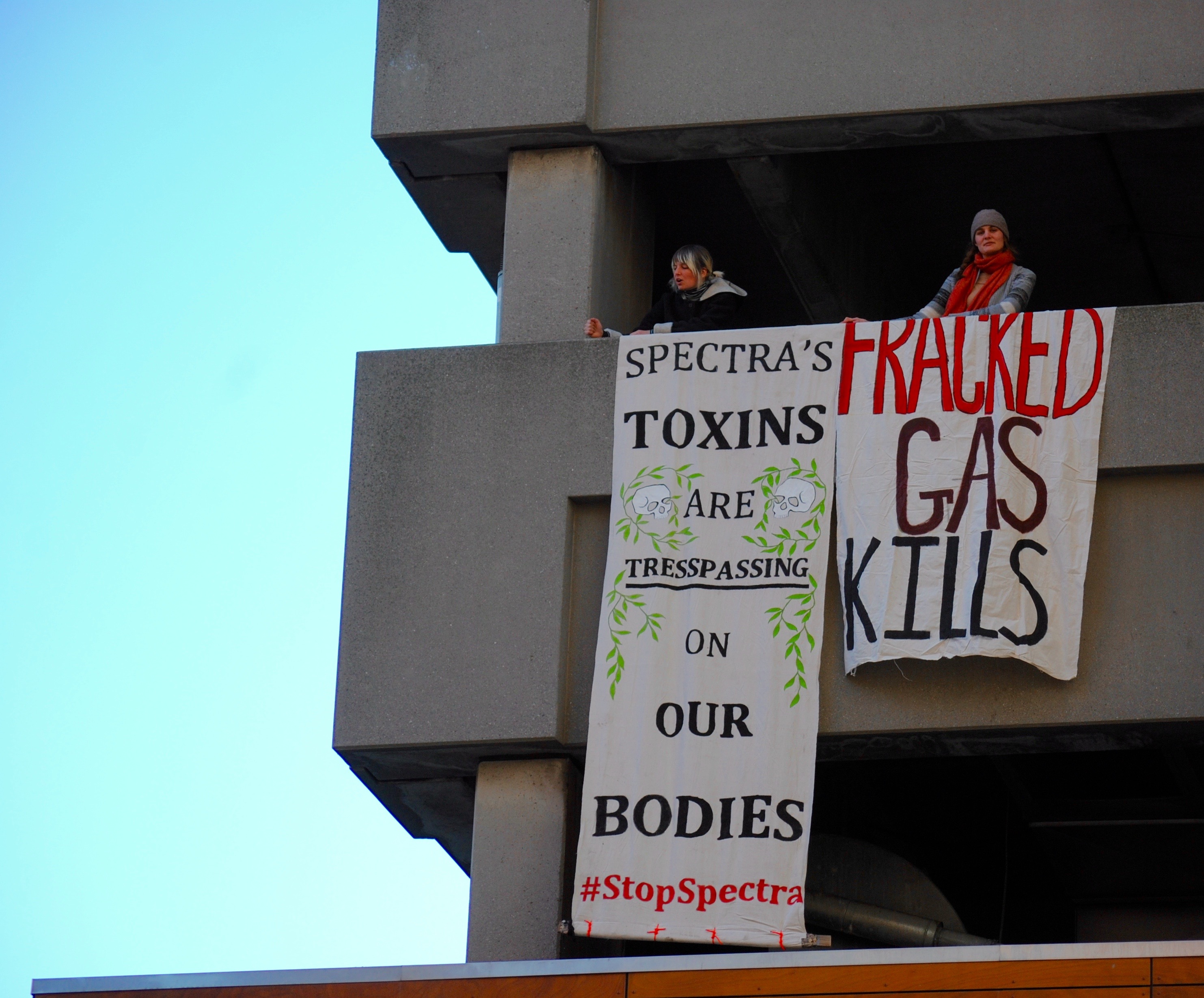
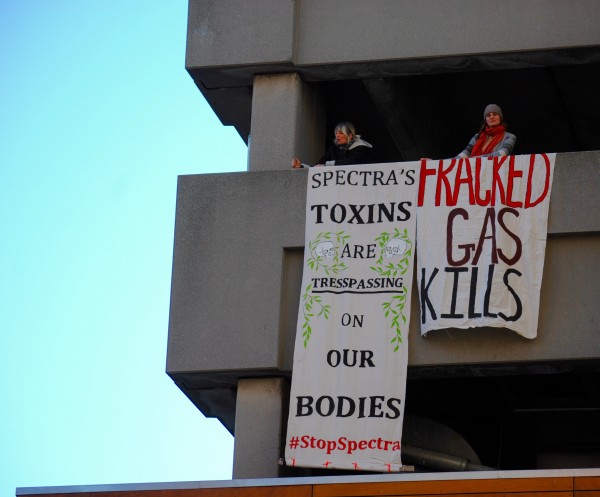 About 75 demonstrators from Massachusetts, Connecticut, Rhode Island and other New England states descended on the Revere Hotel in Boston Monday afternoon to confront executives from Spectra Energy and Kinder Morgan, in town for a behind closed doors presentation ahead of the 2nd annual Northeast Energy Summit. Demonstrators took over the sidewalks outside the hotel, holding signs and chanting, “Invest in renewables, not fracked gas!”
About 75 demonstrators from Massachusetts, Connecticut, Rhode Island and other New England states descended on the Revere Hotel in Boston Monday afternoon to confront executives from Spectra Energy and Kinder Morgan, in town for a behind closed doors presentation ahead of the 2nd annual Northeast Energy Summit. Demonstrators took over the sidewalks outside the hotel, holding signs and chanting, “Invest in renewables, not fracked gas!”
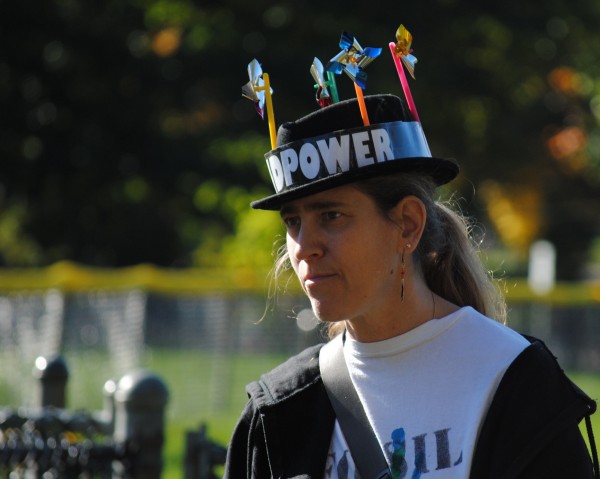
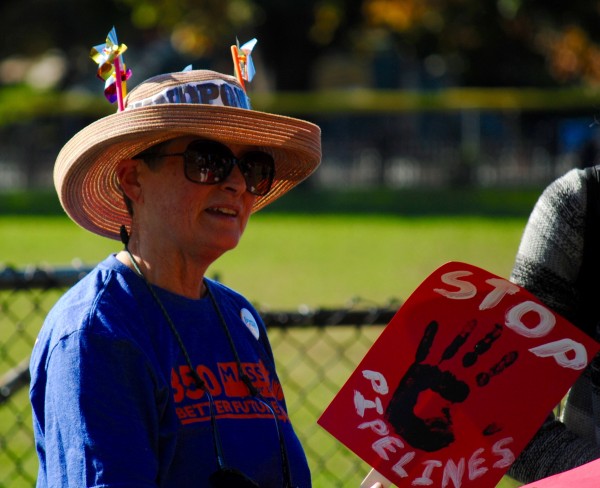
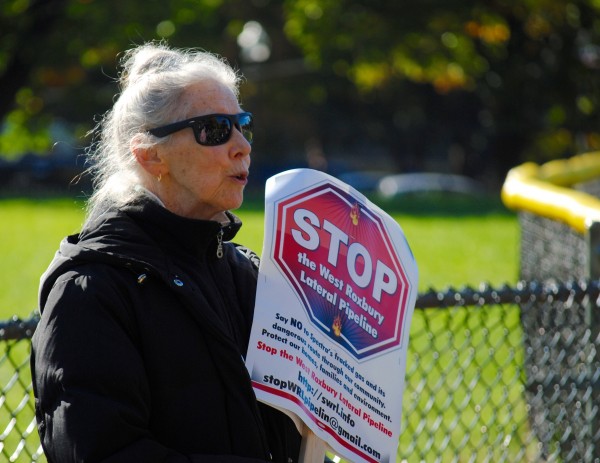
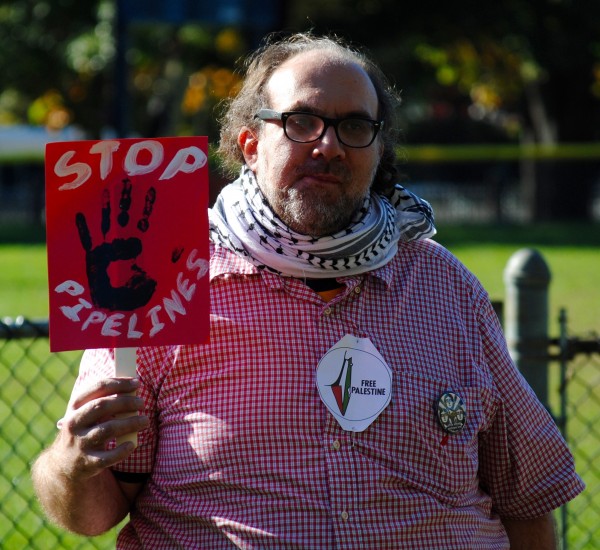





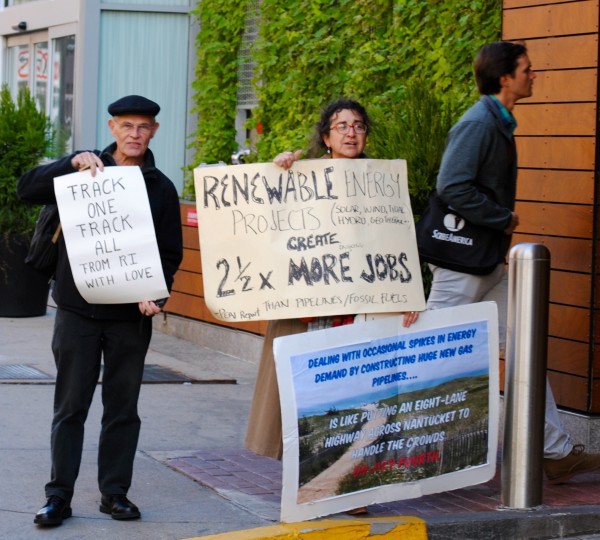
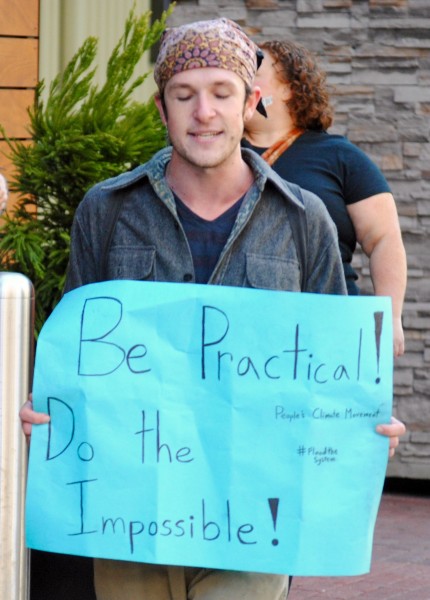
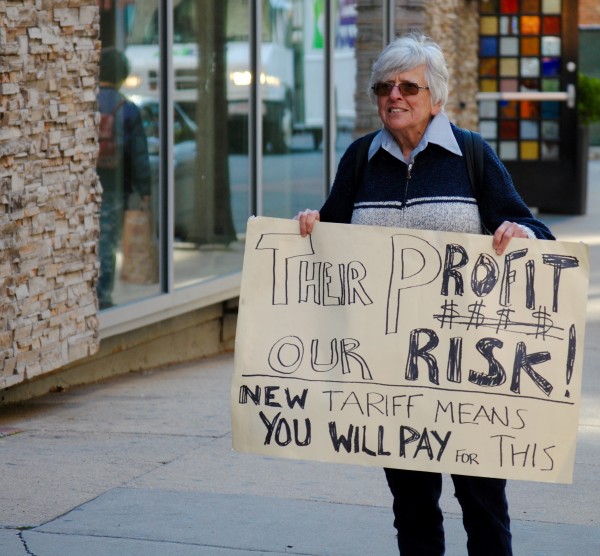


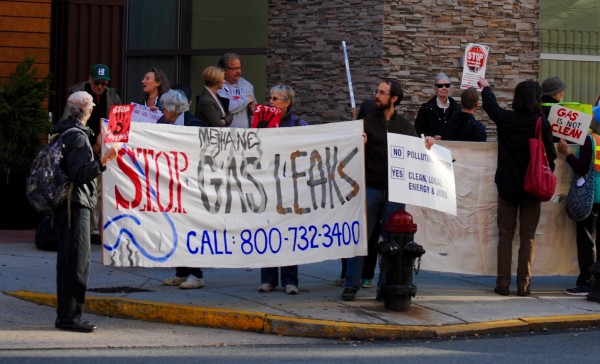
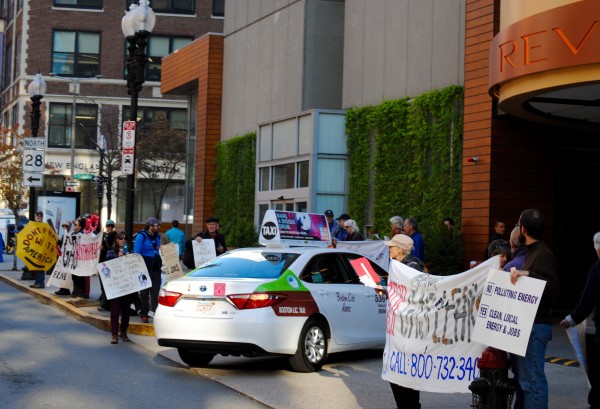
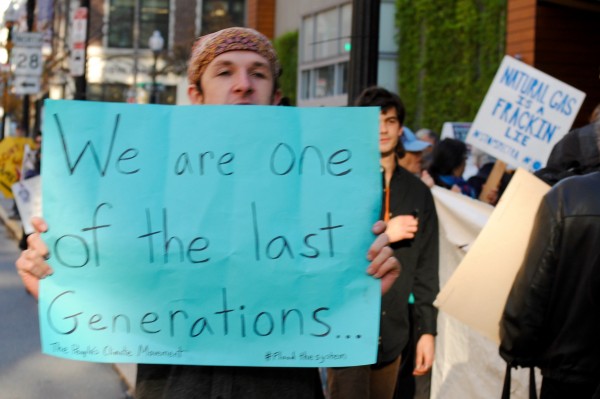
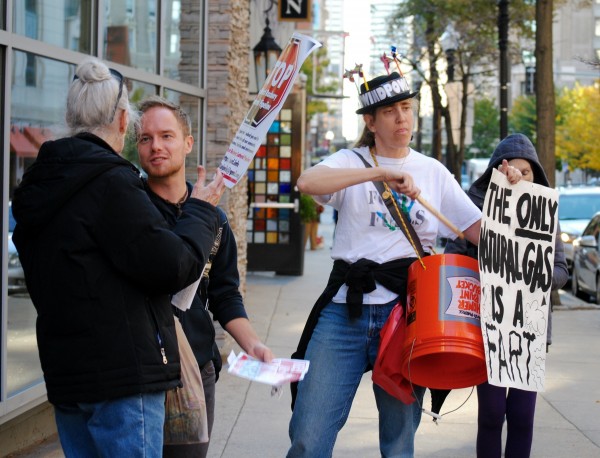
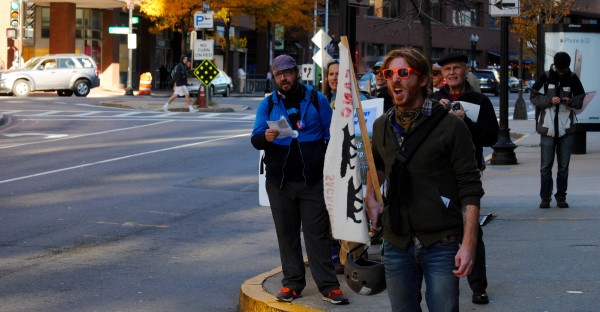



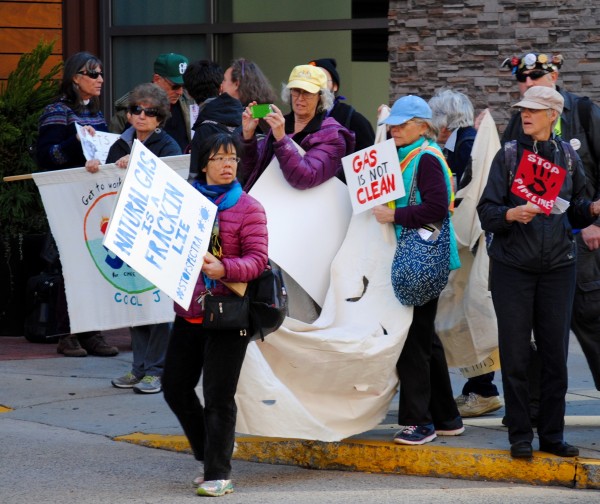
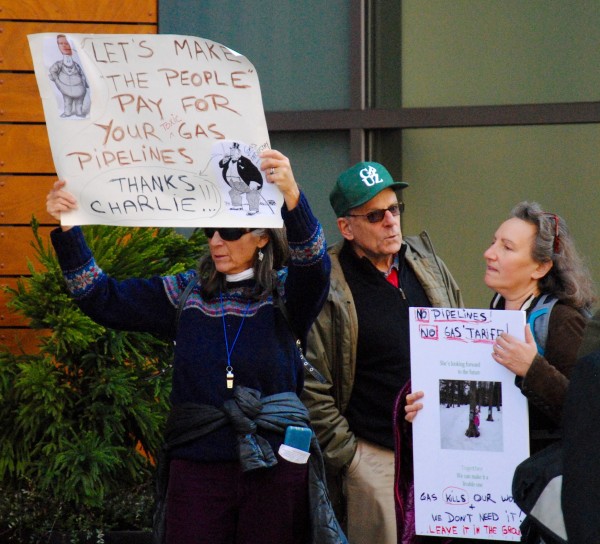



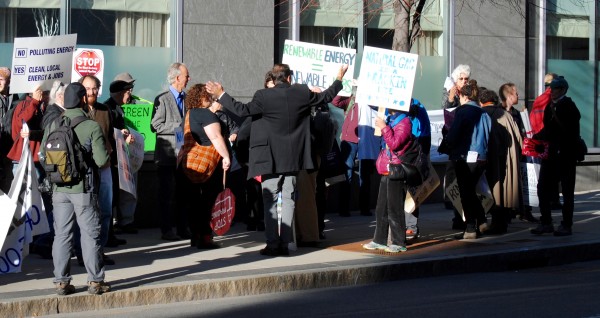
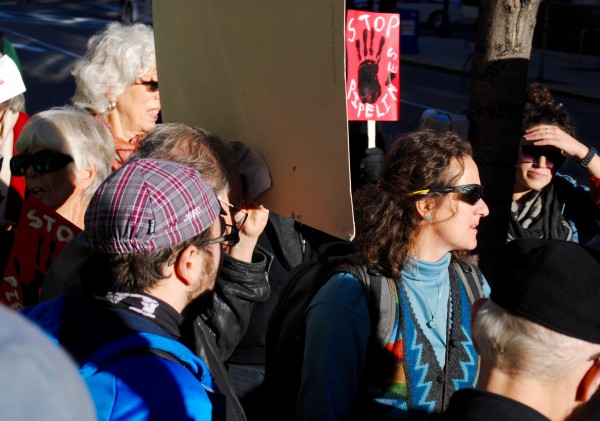



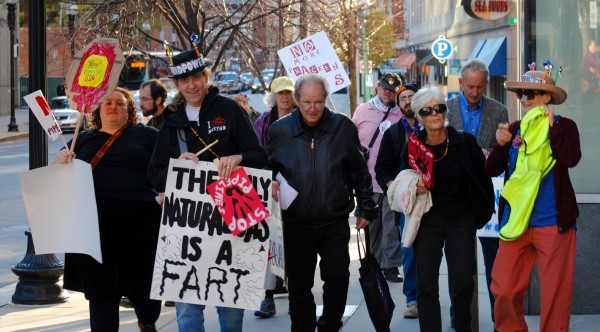
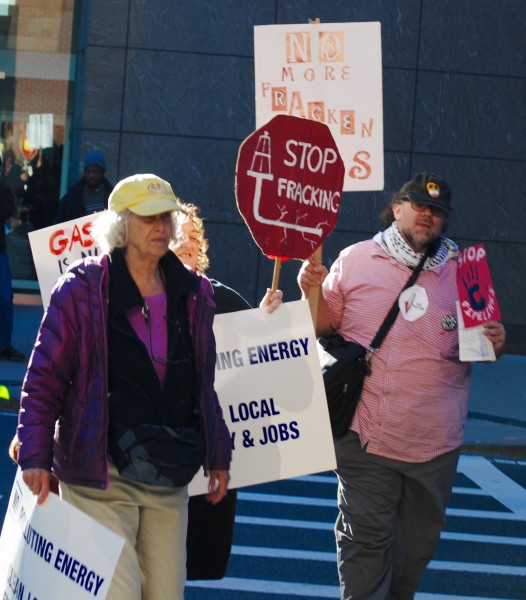
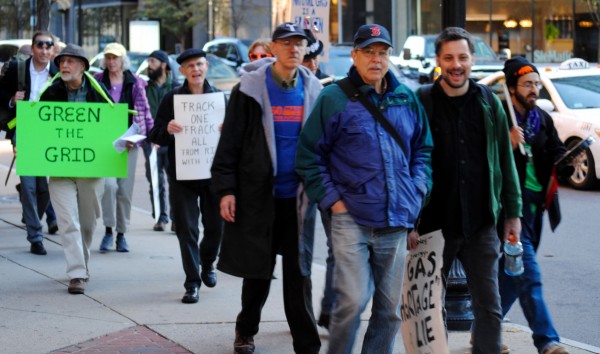
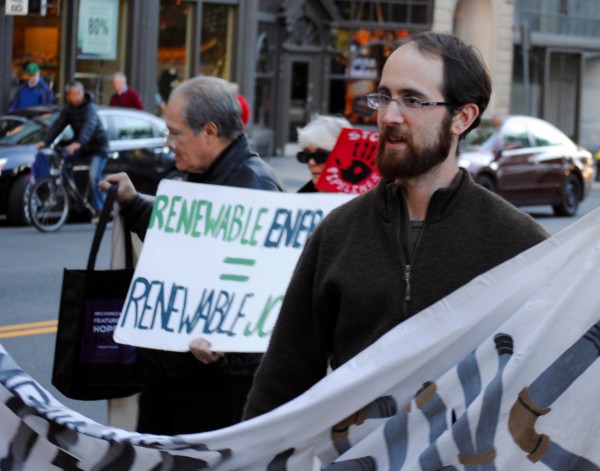



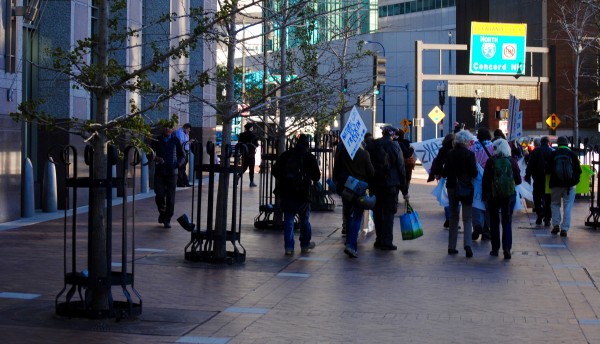



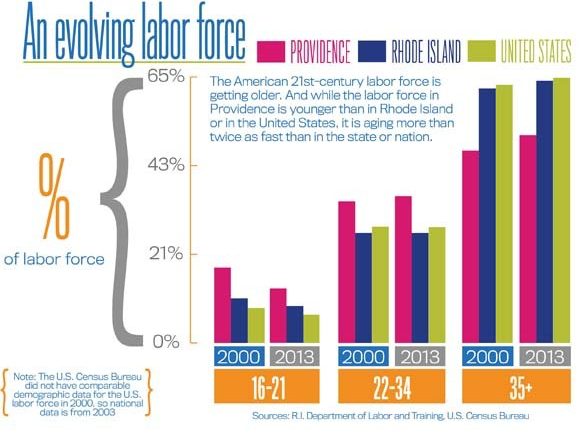




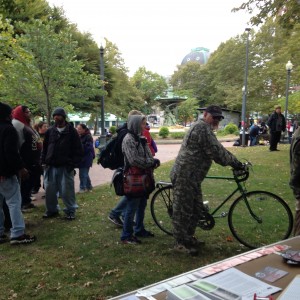




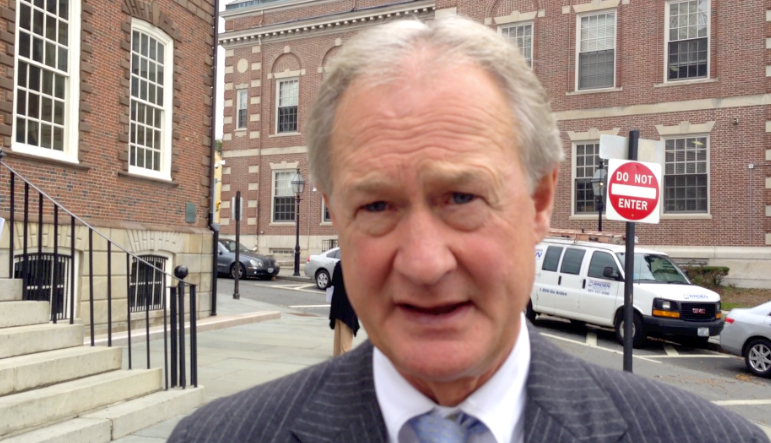





 The American Civil Liberties Union of Rhode Island has called on all school districts that currently have school resource officers (SROs) to re-evaluate their use in the schools and to revise the agreements they have with police departments that set out their job responsibilities. The call was prompted by incidents at Pawtucket’s Tolman High School last week, which reinforced many of the serious concerns the ACLU has long held regarding the routine presence of police officers in schools.
The American Civil Liberties Union of Rhode Island has called on all school districts that currently have school resource officers (SROs) to re-evaluate their use in the schools and to revise the agreements they have with police departments that set out their job responsibilities. The call was prompted by incidents at Pawtucket’s Tolman High School last week, which reinforced many of the serious concerns the ACLU has long held regarding the routine presence of police officers in schools.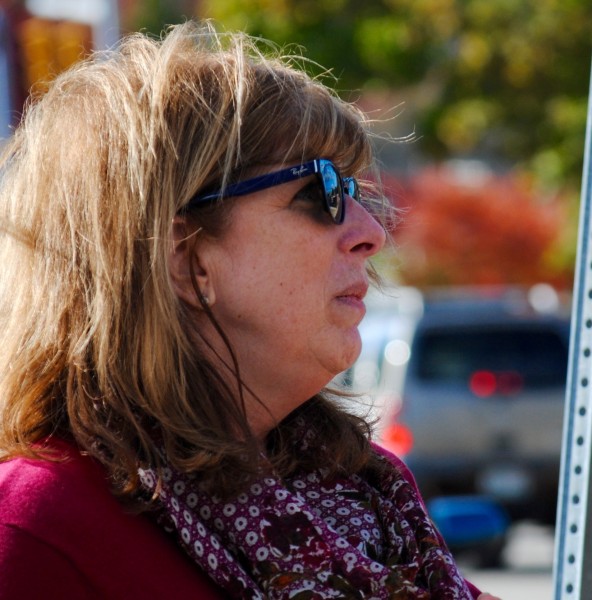
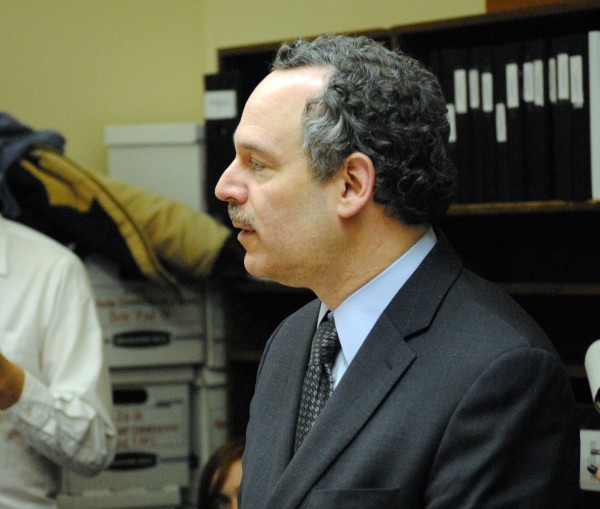
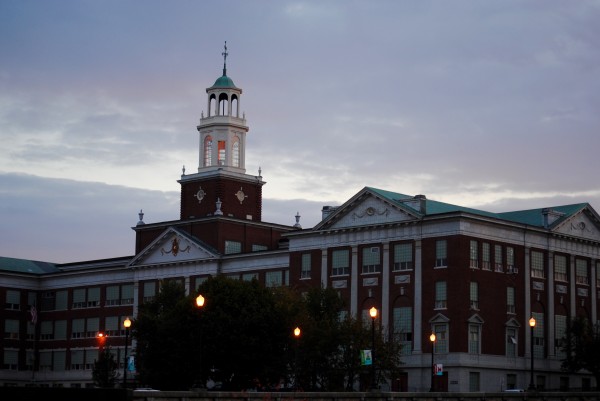 The letter acknowledged that Pawtucket should not be singled out for such problems. A 2011 review by the ACLU of SRO use across the state found that many school departments had similar “one-sided” MOUs and that there were many incidents in which the presence of a police officer escalated a student’s minor infraction, such as wearing a hat in school, into an arrest for disorderly conduct.
The letter acknowledged that Pawtucket should not be singled out for such problems. A 2011 review by the ACLU of SRO use across the state found that many school departments had similar “one-sided” MOUs and that there were many incidents in which the presence of a police officer escalated a student’s minor infraction, such as wearing a hat in school, into an arrest for disorderly conduct.
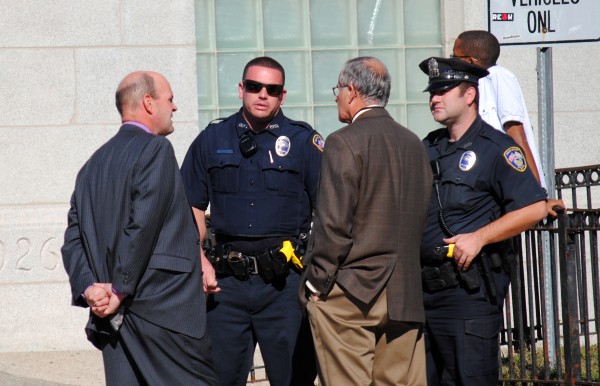 The twenty people, parents, activists, concerned citizens and students, gathered in the meeting room at the Pawtucket Public Library Tuesday night agreed that the police officer violently arresting two brothers at Tolman High School last week used, “too much force.”
The twenty people, parents, activists, concerned citizens and students, gathered in the meeting room at the Pawtucket Public Library Tuesday night agreed that the police officer violently arresting two brothers at Tolman High School last week used, “too much force.” An activist countered that, “safety is different from policing” and then worked to disentangle the two ideas. “Developing forms of keeping each other safe is important,” he said. “We need to ask ourselves ‘Why are our schools unsafe?’
An activist countered that, “safety is different from policing” and then worked to disentangle the two ideas. “Developing forms of keeping each other safe is important,” he said. “We need to ask ourselves ‘Why are our schools unsafe?’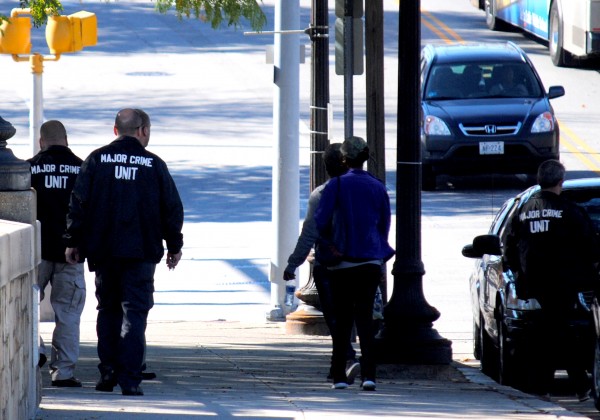 Back in the meeting room at the Pawtucket Library, someone suggested educating high school kids about their rights and teaching the youth to prevent the kinds of situations where they might be targeted for arrest by police officers. An objection to the second part of this idea was immediately voiced: Framing this as “how kids should behave puts the blame [for police violence] on the kids.”
Back in the meeting room at the Pawtucket Library, someone suggested educating high school kids about their rights and teaching the youth to prevent the kinds of situations where they might be targeted for arrest by police officers. An objection to the second part of this idea was immediately voiced: Framing this as “how kids should behave puts the blame [for police violence] on the kids.”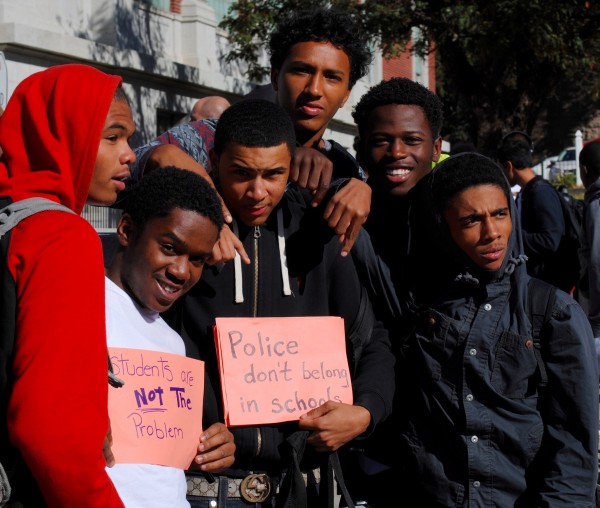 “I don’t know how to defend myself and my children as a Hispanic woman,” said a mother. She has come to this meeting because she can imagine her children being arrested by police officers as shown in the video, and she worries. Like everyone in the room, she knows the statistics about students of color being disproportionately suspended from school. She is aware of the school to prison pipeline, and she wants to keep her children out of it.
“I don’t know how to defend myself and my children as a Hispanic woman,” said a mother. She has come to this meeting because she can imagine her children being arrested by police officers as shown in the video, and she worries. Like everyone in the room, she knows the statistics about students of color being disproportionately suspended from school. She is aware of the school to prison pipeline, and she wants to keep her children out of it.